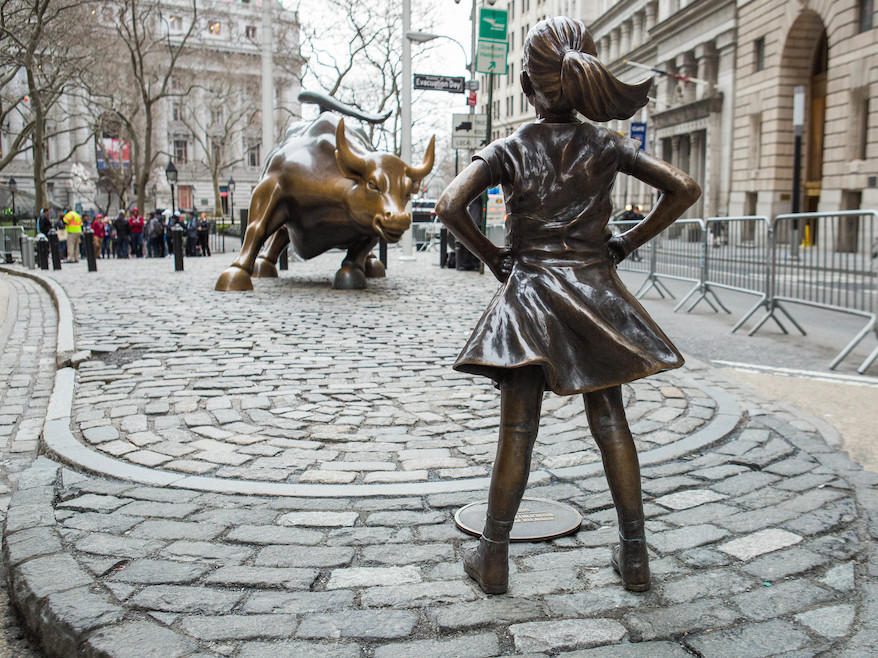For a few exhilarating days, Wall Street was swamped by a wave of poetic justice. An unlikely army of small investors, using do-it-yourself trading platforms (like RobinHood) and online chat rooms (like Reddit), drove shares of video game retailer GameStop to dizzying heights — seemingly upending the power structure of high finance.
GameStop shares peaked on January 28 at US$469: up 2,000 per cent from year-end 2020. By that measure the company seemed to be worth over $30 billion, 100 times the modest equity reported in its quarterly results.
This stratospheric takeoff caused painful losses for certain Wall Street hedge funds, who had earlier placed bets (through “short” positions) that GameStop shares would fall. Some, like Melvin Capital, lost billions, forced to buy GameStop shares at inflated prices to settle their ill-fated wagers.
The Financial Times likened it to a reincarnation of the Occupy movement. Anthony Scaramucci, former Goldman Sachs financier, called it the “French Revolution of Finance.” Instead of guillotines, this ragtag army of financial rebels used “short squeeze” trading strategies to decapitate a few rich speculators.
While the schadenfreude of hedge funds being hoisted on their own petards was admittedly delicious, the idea that the Reddit mob somehow stuck it to the financial elite is exactly backwards. Sadly, those same day-traders are now paying the price as GameStop shares (purchased at unnatural highs) come back to earth. Indeed, as I write this, GameStop was already down 80 per cent from peak — destroying $25 billion of the so-called “value” day-traders had magically created. Far from challenging the economic and political power of the financial aristocracy, this roller-coaster ride only reinforced it.
Consider BlackRock Inc., the world’s largest money manager, with US$8.7 trillion in assets. It owned 13 per cent of GameStop at end-2020. Depending on how BlackRock’s traders responded (and they do not get financial advice on Reddit), it could have made $2 billion from the GameStop bubble. That’s chump change to BlackRock. But it reminds us that whether the markets are rising or falling, it’s the big insiders — with their high-frequency trading machines, their networks and contacts, and their sway with governments and regulators — who almost always come out on top.
Other insiders reap direct profits from the day-trading mania, more than outweighing the losses of a few hedge funds. Chief among them are the brokers and market-makers who take a tidy commission from each order. Even so-called “zero commission” trading houses like RobinHood make money on every trade — just as “no fee” mutual funds still soak your RRSP to pay inflated salaries to their managers and brokers. Remember, in any casino the house always wins: the more you play, the more they win. The stock market is no different.
Yes, anyone with Wi-Fi can play the markets, but the big money is incredibly concentrated among the elite of society. In the U.S., the richest one per cent of the population owns over 50 per cent of all shares and mutual funds. The top 10 per cent own 85 per cent. The bottom 50 per cent own virtually none.
Canada’s wealth maldistribution is almost as Dickensian. Canadians making over $250,000 in 2017 (1.6 per cent of tax-filers) captured 54 per cent of all capital gains that year, and 40 per cent of all investment-related income. Not many of those folks are day-trading from their mothers’ basements. Whenever speculative bubbles inflate — whether fuelled by collective manias or market-boosting stimulus from central banks — the rich pocket most of the gains.
The GameStop saga (and similar bubbles now roiling other stocks, silver markets, and even Canada’s BlackBerry) confirms that stock market hyperactivity has become fully divorced from economic reality. As millions died from COVID-19 last year, financial markets set new highs. Billionaires got much richer, while billions suffered.
The misguided rebels of Reddit are only making those billionaires richer. If we really want to hold the financiers to account, there are much better ways to do it: their useless, zero-sum speculation should be tightly regulated, and in some cases prohibited outright. Their taxes should be raised, starting by closing preferential loopholes like partial inclusion of capital gains. And we should expand other methods (like public investment) for putting money to work in the real economy.
The hyperactivity of the paper casinos does far more economic harm than good. Playing their game only encourages them.
Jim Stanford is economist and director of the Centre for Future Work, and divides his time between Vancouver and Sydney. He tweets at @JimboStanford. This column was first published in the Toronto Star.
Image credit: Anthony Quintano/Flickr



